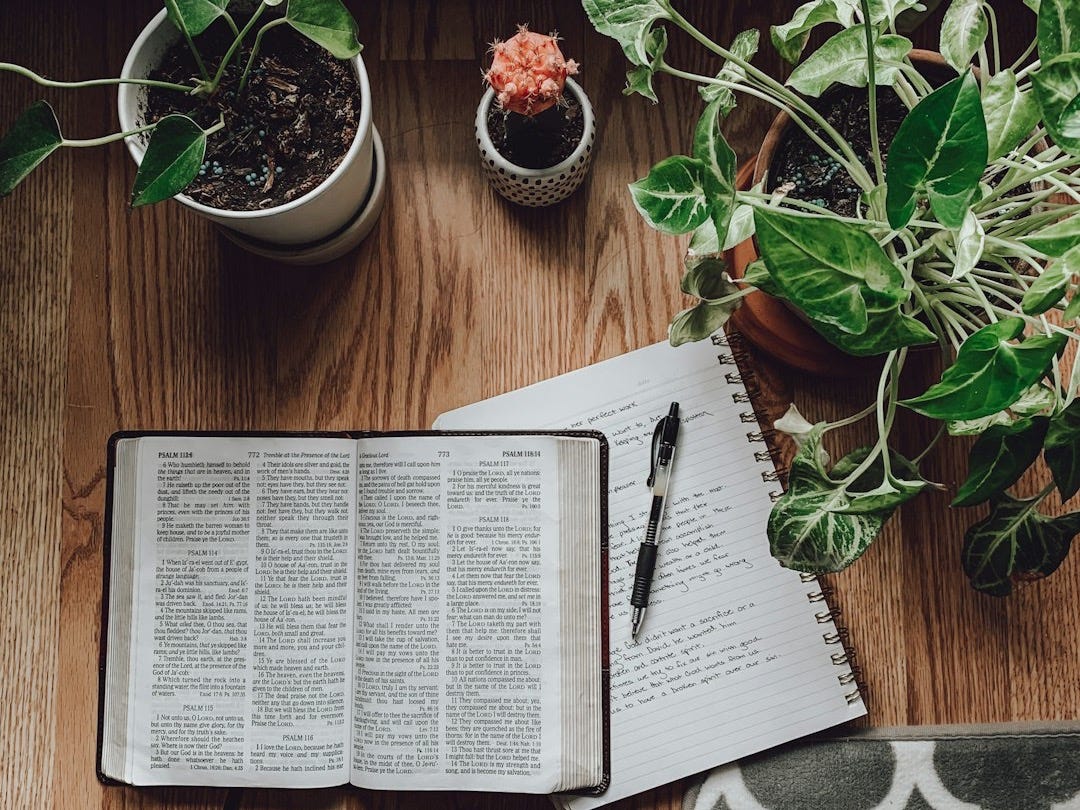Anchor
Now faith is the substance of things hoped for, the evidence of things not seen. - Hebrews 11:1
Sea
If hope seemed naive, faith to many more is just plain blind. I’m not even going to argue with you there. Good thing we have five senses!
Our week’s scriptural anchor defines faith “as the evidence of things not seen.” The Bible wants you to know right off the bat that faith is not exclusively built on what you see in front of you. Take stock of what’s going on, YES! But having done that, the Bible tells you to shift your focus to what you can’t see—who is working behind the scenes and what’s growing below the surface.
Sight might be the first sense many of us rely on to gather information about our physical world, but when it comes to spiritual things, it is very often the last. 2 Corinthians 5:7 says “We walk by faith and not by sight…” Walking by faith led Abraham to trust God to lead him to an unknown land. It led Hannah to believe that God would give her a child despite struggling with infertility. It led Moses to split the Red Sea and Peter to walk on water. It led Jesus to submit to arrest and crucifixion, trusting that God would raise him from the dead.
Yet both the New and Old Testaments are full of others who witnessed miraculous signs firsthand without them producing faith. I guess seeing isn’t always believing.
Jesus himself teaches us this by telling the story of the poor man Lazarus and the rich man. After having all he wished for in life and being miserly to Lazarus, the rich man dies and experiences hell. Lazarus, on the other hand, experiences heaven. The formerly rich man, now in agony, asks Abraham to send Lazarus back from the dead.
“ I beg you, father, send Lazarus to my family, for I have five brothers. Let him warn them so that they will not also come to this place of torment.’
“Abraham replied, ‘They have Moses and the Prophets; let them listen to them.’
“‘No, Father Abraham,’ he said, ‘but if someone from the dead goes to them, they will repent.’
“He said to him, ‘If they do not listen to Moses and the Prophets, they will not be convinced even if someone rises from the dead.’”
Most of us think that we don’t believe because God hasn’t met the burden of proof—that if we only saw something truly mindboggling and physics-defying, we would naturally believe. But Jesus says something different in this parable.
Jesus says, “I’ve given you what you need.”
The issue is not that we need more (more faith, more time, more proof); our biggest problem is that we haven’t acted on what we already have. The words of God to his people ( the five books of the Jewish law represented by Moses and the books of Jewish prophecy represented by the Prophets) are more than enough to plant the initial seed of faith. And that’s good news because God has already given you what you need for a life of faith! A word from Him, a tiny seed, is all the evidence you need that a garden is possible. If you plant that substance in your life, it will grow. It doesn’t matter if it’s immense faith or faith the size of a mustard seed. Evidence is evidence.

Jesus also says, “Pay attention to how you hear.”
Jesus and Abraham both say listening to God is more important than seeing the miraculous. Crucially, listening to God comes before seeing the miraculous. If you believe His word, you will see it come to pass. But if you won’t listen, you will not believe it even when it comes to pass.
The Bible accords more importance to hearing than seeing when it comes to faith, and here’s why:
Seeing is all about proof. Hearing is all about trust.
God is interested in communicating with us through his word because when we take it seriously, we show we trust him. On the other hand, seeing is all about my belief in my ability to perceive a situation and assess its truth accurately. It hinges on my faith in my perception. Hearing is all about the trustworthiness of the speaker, in this case, God.
Let’s look at the following examples.
I saw Daria marry Mike.
I heard Daria married Mike.
In the first statement, the speaker believes that it is true that Daria married Mike. Let’s say that the speaker attended Daria and Mike’s wedding. In the second sentence, the speaker may or may not believe Daria married Mike. If the source of the information is Daria’s mom, then it’s probably very likely that Daria married Mike. If the source is a habitual liar or a town gossip, it may well not be true.
In the case where the speaker attended the wedding herself, the speaker isn’t relying on anyone else to confirm or deny the statement's truth. In the second case, the speaker relies on someone else's reputation to stand by her assertion.
Notice how our certainty about whether Daria married Mike is 100% in the first case unless you are prone to hallucinations. But in the second case, your certainty depends on the source.

Jesus says, “I AM trustworthy.”
When the source of a message is God—faith tells us there is no reason to doubt. We should trust Him more than we trust our own eyes. After all, if you’re honest, you can’t see the future, you can’t even really understand the past, and you don’t even have the best eyesight as it is. But if God exists, God is indeed all-knowing and all-powerful. To have faith in what God says is equivalent to having faith in God’s divine nature and trustworthy character. His holy nature assures us that nothing can prevent God’s word from coming to pass. And his trustworthy character assures us that God is not a liar. He doesn’t hallucinate, and he can’t be tricked.
To believe this requires reason. The Bible says faith is substance and evidence—the starting point of reasoning, not its antithesis. Faith is not a feeling. It is your trusting thought posture and diligent action toward your good and unrealized desires. This thought posture is based not on the situation, your accurate perception, or your capability—but on the words of a loving and trustworthy God. You don’t need to feel like you can do it. You need to reason that if omniscient God says you can with his help, then indeed you can.
If you are still struggling with faith
You are not disqualified. I also struggle with faith. Everyone who walks with God long enough does. We read something we can’t yet accept, or something happens that we don’t understand, and we say, “Bah! I don’t think this is for me. I knew it!”
But perhaps the soil of your heart isn’t ready to receive that word yet?
My farmer friend Mary says, “We don’t grow plants; we grow soil.” And sometimes, the soil of our heart needs a little tending. After all, the soil required to grow weeds differs from the soil needed to plant prize-winning heirloom roses. In either case, the easiest way to grow soil is to turn it over, dump dead stuff on it, and seed plants that improve the soil quality: red clover, partridge pea, wild lupine, and sunflowers—or, in our case, thankfulness, generosity, truth, and humility.
If you are just getting started in this life of faith, instead of focusing on what you can’t accept in God’s word, focus on what you can. God’s planting a garden here, not just rows of corn. These things take time and every plant must be sown in its season.

My invitation is to focus on God’s word to you that you do believe and bury it in your heart. Drive it deep into the dirt and decay of your life. Let your life fold around it, and try and water it regularly. And even if you forget to water it—the rains of everyday storms will, and in time, unbeknownst to you, your tiny seed of faith will begin to grow roots and eventually a young shoot! If you tend this shoot and plant other seeds with your newfound confidence that when you plant God’s word in your heart, it grows, eventually, you will see spectacular blooms and taste mouthwatering fruit.
So don’t look at the word God has given you and despise it, saying you need more proof or more faith to get started. Oh no, my friend. That seed is the beginning of your garden. And the fruit your faith bears will be eternal.
Verily,
Alysia
Sail
I promised a picture and a poem from Venice. I am so grateful to be writing small, delicate poems again.
Milk of my heart, you alone satiate me. Drench the canals, grasses, and streams, and the boy learning how to be a boy as you made him and the man as you raise him. Milk of my heart, I have suckled wine, tears, and semen and never grew strong. Milk of my heart, I know you have exquisite plans—pink clouds curdle in your periwinked sky. I love you. Shadow me shadowing you. Become my bones. Become my teeth. I do not know if I can stand. At the edge of tomorrow, I pitch my hope. This work of function over form requires imagination at the expense of my form. Milk of my heart, walk me blind so that tasting you, I may see.














Share this post